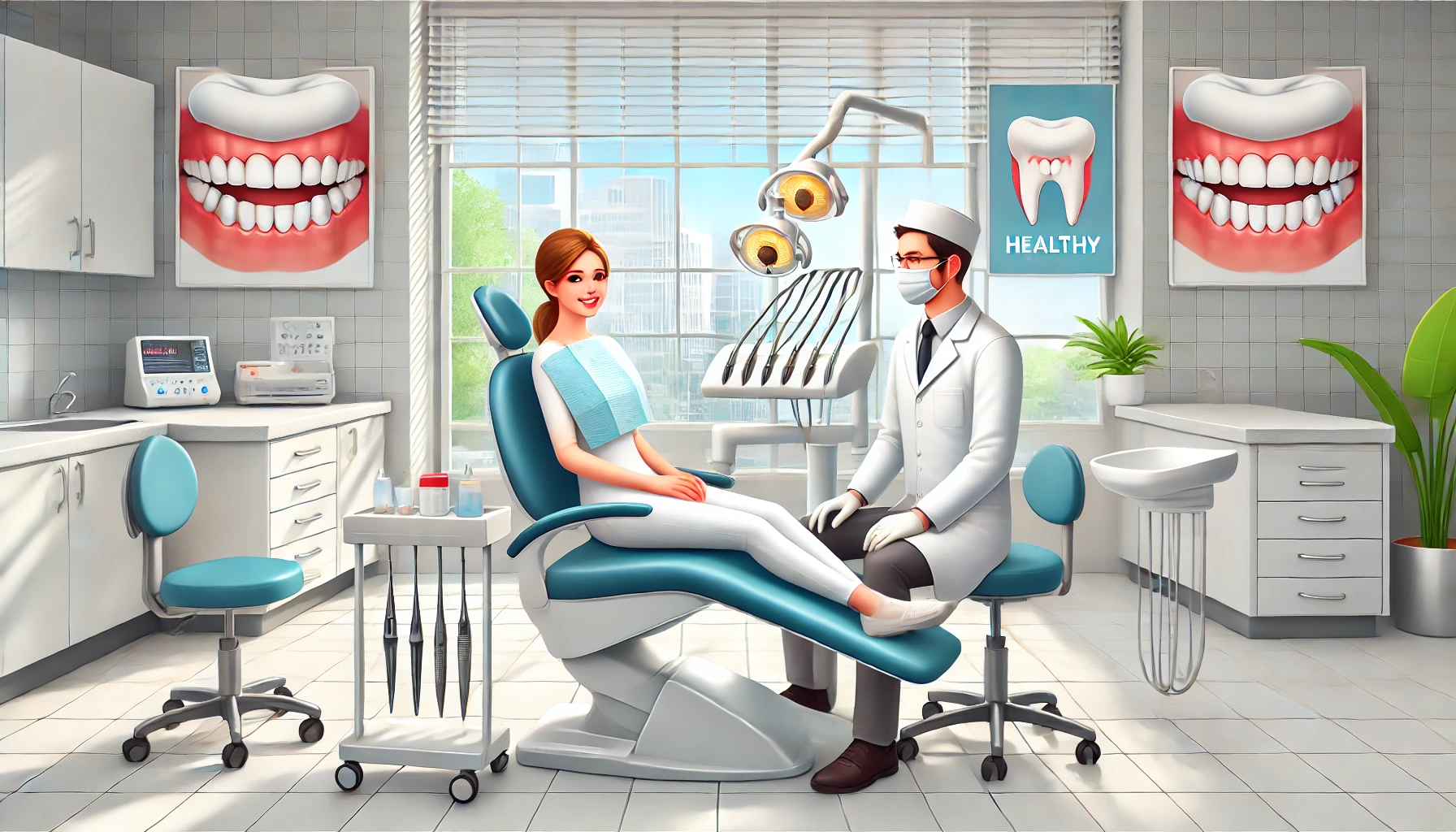Introduction to newssyc.in/category/dental
Good oral hygiene is pivotal for maintaining overall health. It goes beyond just having a nice smile; it is crucial for preventing a range of health issues. Regular brushing and dentist visits are key to ensuring your dental health is at its best. If you’re looking to elevate your dental care routine, this guide is for you. Let’s explore the various aspects of dental care at newssyc.in/category/dental that can help you maintain sparkling teeth and healthy gums.
The Importance of Dental Health
Understanding the importance of dental health is the first step towards a brighter smile. Good oral hygiene practices not only help in keeping your teeth white but also prevent dental issues like cavities and gum disease. Studies have shown that poor dental health can lead to various systemic diseases, including heart disease and diabetes. Therefore, taking care of your teeth and gums is essential.
Not many people know that dental health can affect more than just your mouth. For example, infections in your gums can spread to other parts of your body, leading to severe health issues. This is why regular dental check-ups are important to catch any problems early. By keeping up with good oral hygiene, you can avoid these risks and enjoy better overall health.
At newssyc.in/category/dental, we emphasize the importance of oral hygiene for your well-being. Our articles offer valuable insights into maintaining dental health, making it easier for you to follow a routine that keeps your smile bright and healthy.
Brushing Techniques
One of the most basic yet essential aspects of oral care is brushing your teeth. However, not everyone knows the correct way to do it. The American Dental Association recommends brushing your teeth twice a day for at least two minutes each time. Use fluoride toothpaste to strengthen your tooth enamel and fight cavities effectively.
When brushing, hold your toothbrush at a 45-degree angle to your gums. This helps remove plaque and food particles from both your teeth and gum line. Make sure to brush all surfaces of your teeth, including the outer, inner, and chewing surfaces. Don’t forget to brush your tongue as well to remove bacteria and keep your breath fresh.
For more detailed brushing techniques and tips, visit newssyc.in/category/dental. Our comprehensive articles guide you through the best practices for brushing your teeth, ensuring you make the most out of your oral care routine.
Flossing Matters
While brushing is crucial, flossing is equally important for maintaining dental health. Flossing helps remove plaque and food particles from areas your toothbrush can’t reach, such as between your teeth and under the gum line. This prevents the buildup of plaque, which can lead to cavities and gum disease.
To floss effectively, use about 18 inches of dental floss and wind it around your middle fingers. Gently slide the floss between your teeth using a back-and-forth motion. Curve the floss around each tooth and slide it under the gum line to remove any trapped debris. Repeat this process for all your teeth.
At newssyc.in/category/dental, we provide detailed guides on how to floss correctly. Our articles highlight the importance of flossing and offer tips to make it a seamless part of your daily routine.
The Role of Mouthwash
Mouthwash can be a valuable addition to your oral hygiene routine. It helps kill bacteria, freshen your breath, and reduce plaque and gingivitis. However, it’s essential to choose the right mouthwash for your needs. There are different types of mouthwash available, including fluoride mouthwash, antiseptic mouthwash, and cosmetic mouthwash.
Fluoride mouthwash helps strengthen your tooth enamel and prevent cavities. Antiseptic mouthwash contains ingredients like chlorhexidine and essential oils that kill bacteria and reduce plaque. Cosmetic mouthwash, on the other hand, only freshens your breath without offering any long-term benefits.
For more information on selecting the right mouthwash, visit newssyc.in/category/dental. Our articles provide in-depth reviews and recommendations to help you make an informed choice.
Regular Dental Check-Ups
One of the most effective ways to maintain good oral health is by visiting your dentist regularly. Dental check-ups allow your dentist to identify and treat any potential issues before they become serious. During these visits, your dentist will examine your teeth, gums, and mouth for signs of cavities, gum disease, and other dental problems.
Dental check-ups also include professional cleaning, which removes plaque and tartar buildup that regular brushing and flossing can’t eliminate. This helps prevent cavities and gum disease while keeping your teeth and gums healthy. Your dentist may also take X-rays to detect any hidden issues.
To learn more about the importance of regular dental check-ups, explore the articles at newssyc.in/category/dental. Our content provides valuable insights into what to expect during a dental visit and how to prepare for it.
Diet and Dental Health
Your diet plays a significant role in maintaining dental health. Consuming a balanced diet rich in vitamins and minerals helps keep your teeth and gums strong. Foods rich in calcium, such as dairy products, leafy greens, and nuts, help strengthen your tooth enamel. Vitamin C, found in citrus fruits and vegetables, supports gum health and prevents gum disease.
On the other hand, sugary and acidic foods can harm your teeth. Sugar promotes the growth of bacteria that produce acids, which erode your tooth enamel and lead to cavities. Acidic foods and drinks, such as soda and citrus fruits, can also weaken your enamel over time.
For more tips on maintaining a diet that supports dental health, visit newssyc.in/category/dental. Our articles offer practical advice on making healthier food choices to protect your teeth and gums.

The Impact of Smoking on Dental Health
Smoking has a detrimental effect on your oral health. It increases the risk of gum disease, tooth decay, and oral cancer. Smoking weakens your immune system, making it harder for your body to fight off infections. It also reduces blood flow to your gums, which can lead to gum disease and tooth loss.
Quitting smoking is one of the best things you can do for your oral health. It reduces the risk of gum disease and oral cancer while improving your overall health. If you need help quitting, seek support from your dentist or healthcare provider. They can provide resources and recommendations to help you quit smoking successfully.
For more information on the impact of smoking on dental health, check out the articles at newssyc.in/category/dental. Our content highlights the risks associated with smoking and offers tips for quitting.
Dental Care for Children
Teaching your children good oral hygiene habits from a young age sets the foundation for a lifetime of healthy teeth and gums. Start by introducing them to brushing and flossing as soon as their first teeth appear. Use a small, soft-bristled toothbrush and a pea-sized amount of fluoride toothpaste.
Encourage your children to brush their teeth twice a day and floss daily. Make brushing fun by using colorful toothbrushes and toothpaste with their favorite characters. You can also play their favorite song while they brush to ensure they brush for the recommended two minutes.
For more tips on dental care for children, visit newssyc.in/category/dental. Our articles provide valuable advice on teaching your children good oral hygiene habits and making dental care a positive experience.
The Importance of Hydration
Staying hydrated is essential for maintaining good oral health. Water helps rinse away food particles and bacteria from your mouth, reducing the risk of cavities and gum disease. It also promotes the production of saliva, which helps neutralize acids and wash away harmful bacteria.
Drinking fluoridated water is especially beneficial for your teeth. Fluoride strengthens your tooth enamel and helps prevent cavities. If you’re unsure whether your tap water contains fluoride, check with your local water supplier or use fluoride toothpaste and mouthwash.
For more information on the importance of hydration for dental health, explore the articles at newssyc.in/category/dental. Our content provides practical tips on staying hydrated and its benefits for your teeth and gums.
The Benefits of Dental Sealants
Dental sealants are a protective coating applied to the chewing surfaces of your back teeth. They help prevent cavities by creating a barrier that keeps food particles and bacteria out of the grooves and pits of your teeth. Sealants are especially beneficial for children and teenagers, as their back teeth are more susceptible to cavities.
The process of applying dental sealants is quick and painless. Your dentist will clean and dry your teeth before applying the sealant material. Once applied, the sealant hardens and forms a protective shield over your teeth. Sealants can last for several years with proper care.
To learn more about the benefits of dental sealants, visit newssyc.in/category/dental. Our articles provide detailed information on how sealants work and their role in preventing cavities.
Dental Care for Seniors
Maintaining good oral health is essential for seniors, as they are more susceptible to dental issues like gum disease, tooth decay, and tooth loss. Regular dental check-ups, proper oral hygiene, and a balanced diet are crucial for keeping their teeth and gums healthy.
Seniors should brush their teeth twice a day with fluoride toothpaste and floss daily. If they have dentures, it’s important to clean them regularly and remove them at night. A balanced diet rich in vitamins and minerals helps support oral health and overall well-being.
For more tips on dental care for seniors, visit newssyc.in/category/dental. Our articles offer valuable advice on maintaining oral health in later years and addressing common dental issues faced by seniors.
The Connection Between Oral Health and Overall Health
Oral health is closely linked to overall health. Poor dental hygiene can lead to various health issues, including heart disease, diabetes, and respiratory infections. Bacteria from your mouth can enter your bloodstream and spread to other parts of your body, causing inflammation and infections.
Maintaining good oral hygiene helps reduce the risk of these health issues. Regular brushing, flossing, and dental check-ups are essential for keeping your teeth and gums healthy. By taking care of your oral health, you can improve your overall well-being.
For more information on the connection between oral health and overall health, explore the articles at newssyc.in/category/dental. Our content highlights the importance of oral hygiene for your overall health and offers tips for maintaining a healthy mouth.
Conclusion
Maintaining good oral hygiene is essential for keeping your teeth and gums healthy. By following the tips and advice in this guide, you can ensure your smile stays bright and your overall health remains optimal. Remember to brush and floss regularly, visit your dentist for check-ups, and make healthier food choices to support your dental health.
Explore more articles at newssyc.in/category/dental to learn about the latest dental care tips and trends. Our comprehensive content will help you stay informed and make the best choices for your oral health. Take the first step towards a healthier smile today!












